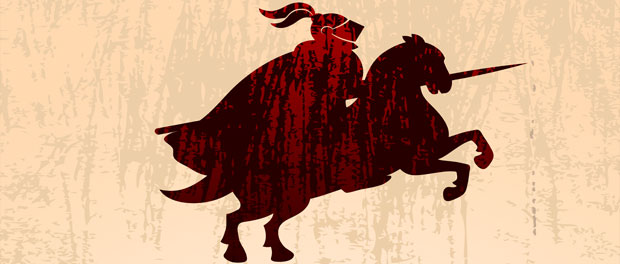
The decisive moment in Ignatius’s life came when he realized that he was imitating the wrong person. He realized that imitating the example of a noble knight could not satisfy him, and that he had a deep desire to imitate the saints.
He had once been satisfied to imitate the knight, with all the social acceptance this imitation brought him. But his devastating injury made him question his life and learn about what he really desired, and he came to understand that the desire to imitate the knight satisfied only his surface desire. Discovering his deeper desire meant letting go of his former patterns of imitation—letting go of his very self, at least as he understood it. He came to understand the need to be “born again,” to start over, to follow Jesus’ radical direction: “If any man would come after me, let him deny himself and take up his cross and follow me” (Mark 8:34, Luke 9:23).
The moment of conversion is the moment of genius, in the sense that Emerson alluded to when he wrote that “imitation is suicide.”
There is a time in every man’s education when he arrives at the conviction that envy is ignorance; that imitation is suicide; that he must take himself for better, for worse, as his portion; that though the wide universe is full of good, no kernel of nourishing corn can come to him but through his toil bestowed on that plot of ground which is given to him to till. (From Self Reliance)
Emerson was partly right: imitation gets us only so far, and at some point we must be responsible for the people we choose to become. Ignatius exchanged one form of imitation for another, but even that second form of imitation—of Saints Dominic and Francis—got him sent home from a failed pilgrimage to Jerusalem and hauled off before the Spanish Inquisition a few times. In time he came to realize the truth: Christ called him to be not a knight, not Francis, and not Dominic, but Ignatius. And the rest of his life was spent in holy imitation of Christ alone, and thereby he came to discover God’s genius in being the person God created him to be.

I want to thank Ignatius for sharing his life. For me it is a daily journey to do my best be to more and more like Christ. I am now able to stop and discern what is holding me back and what I have to do each day as I examine the areas of my life that need help to be more like Christ.